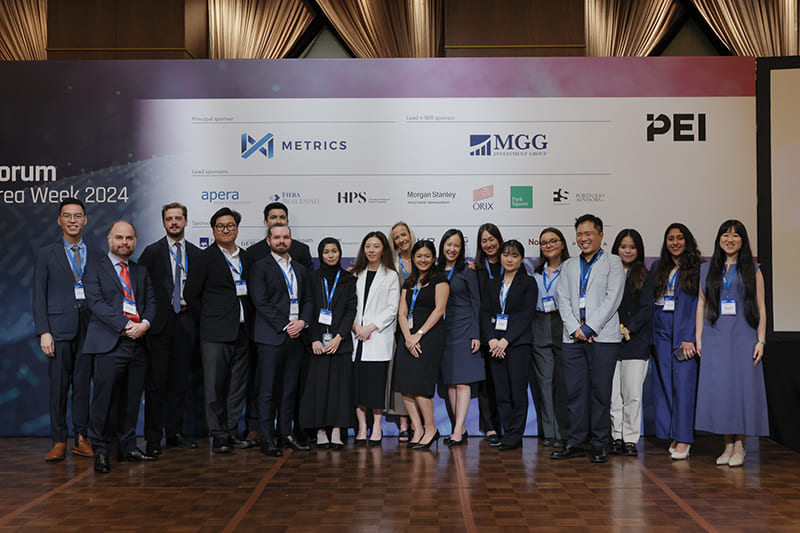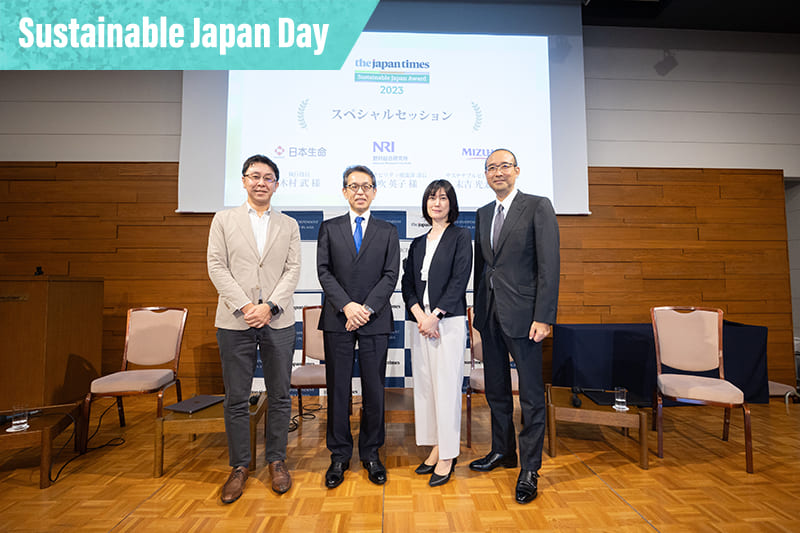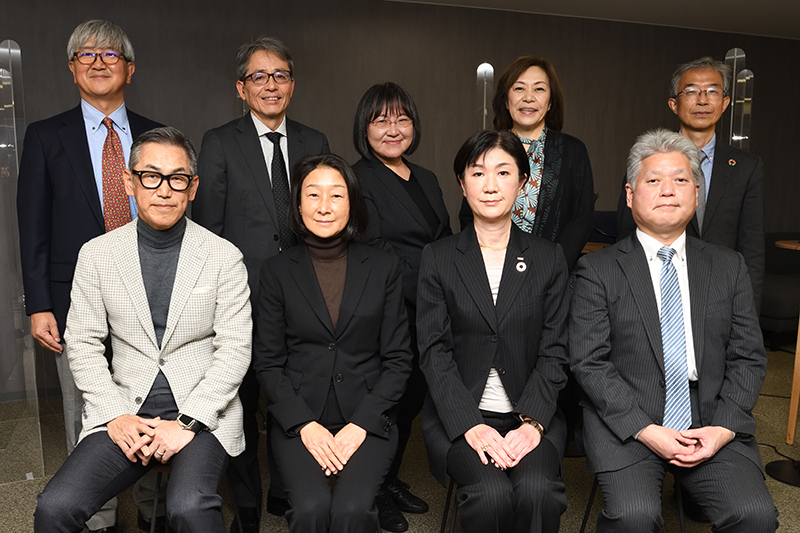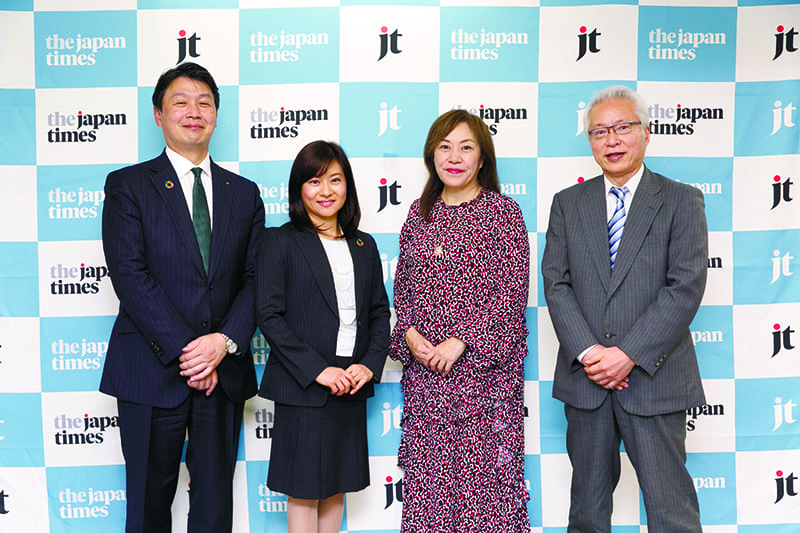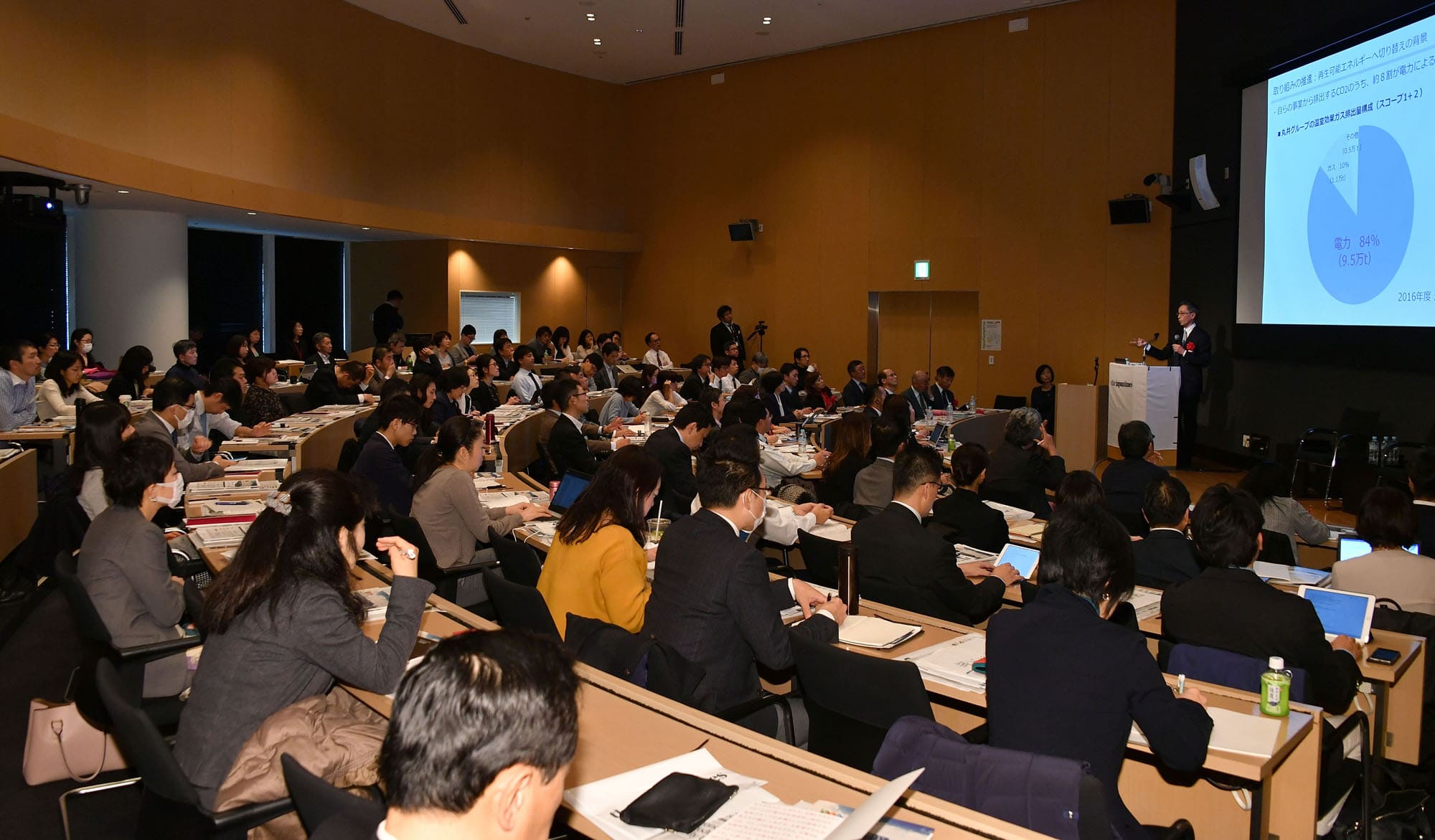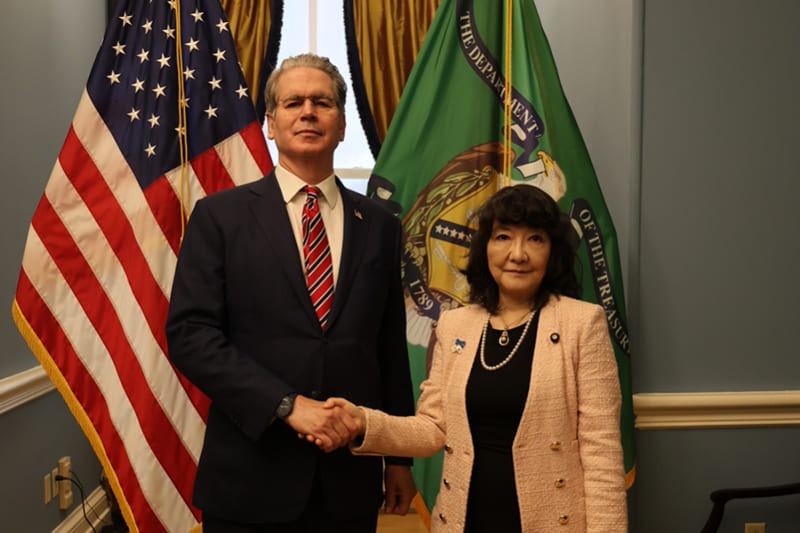April 28, 2025
Event weighs private equity’s role in environmental and social issues
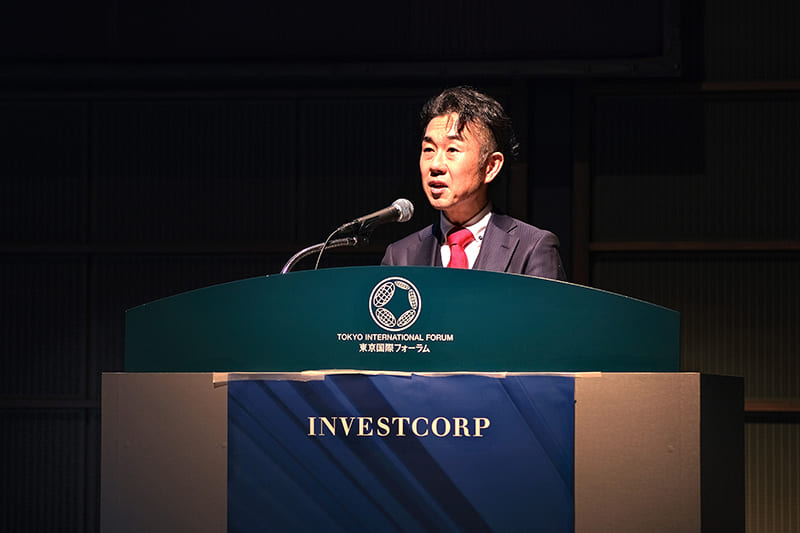
Facing increasingly complex environmental, social and business issues, society needs multifaceted approaches to solutions. To discuss how to address these issues, private equity firms, lawyers and next-generation sustainability experts gathered in Tokyo on March 14 at a conference under the theme of “next-generation nexus and investment.”
Habib Abdur-Rahman, the global head of sustainability at Investcorp, an alternative investment firm and the lead sponsor of the event, emphasized in his keynote speech the significance of addressing climate change and the role of investors in a commercially viable green transformation.
“I think it’s increasingly evident that in a low-carbon future, companies who fail to invest or don’t invest far enough may find themselves uncompetitive as governments and customers increasingly demand more sustainable practices,” Abdur-Rahman said. He also emphasized that the next generation of leadership is essential to driving the green transition.
Heizo Takenaka, a professor emeritus at Keio University, highlighted in his keynote speech the importance of private equity investment in Japan, stressing the need for a system to deploy its high-level technologies and human capital for growth. “I believe private equity funds can play a meaningful role to change Japan, change society and change the global environment,” Takenaka said.
Since its debut in Japan around the turn of the century, private equity investment has grown to about ¥6 trillion ($40 billion) annually. The growth has been driven by companies’ need to streamline operations by selling to private equity funds or strategically delisting their shares, according to Ryosuke Iinuma, chairman of the Japan Private Equity Association.
A panel discussion by young environmental experts focused on the increasing threats from climate change and water insecurity across the country, and on the low level of young people’s involvement in policymaking processes. “The government and ministries invite us to share our opinions, but these are not reflected in their policies,” said Sakura Takahashi from the group Climate Youth Japan.
In the second panel discussion, three experts on private equity investment discussed how they integrate ESG (environmental, social and governance) principles into corporate management to improve the profitability of the companies they invest in.
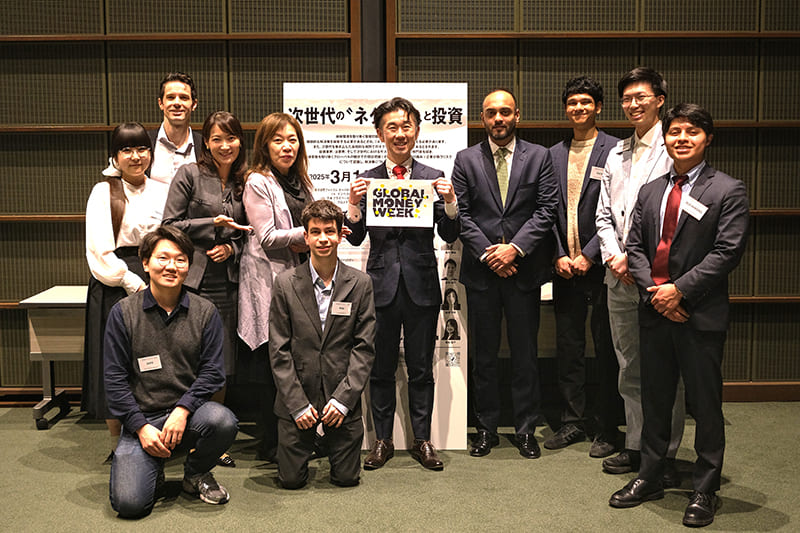
Private equity funds seek to enhance corporate value by reforming the businesses they acquire to achieve higher returns. “We cannot go on doing business without working on various ESG-related activities, and in that sense our daily activities are a nexus,” said Shunsuke Tanahashi, a partner at Investcorp Japan LLC and mediator for the discussion. In the context of sustainability, “nexus” refers to linking multiple factors in addressing issues.
Yusuke Niibayashi, who is in charge of renewables and sustainability at Advantage Partners Inc., detailed the hydrogen fund that the private equity investment firm launched last year in collaboration with the Hydrogen Value Chain Promotion Council, aiming to promote hydrogen as an alternative energy source, particularly for hard-to-abate sectors.
Makoto Iwami, the director of Nippon Sangyo Suishin Kiko, explained the private equity firm’s goal of enhancing corporate value through investments, particularly in mid-capitalization companies, and its commitment to ESG principles, mentioning its efforts on employee growth and gender diversity. Unlike the traditional image of private equity funds as prioritizing short-term profits, NSSK’s corporate mission includes ethical and responsible behavior, he said.
Yuka Katsuki shared Polaris Capital Group Co.’s approach to ESG, including her role as chief sustainability officer and its focus on information disclosure. Polaris mainly invests in medical and welfare sectors, technologies and retailing, emphasizing the importance of ESG in driving corporate value.
The panelists discussed the challenges and opportunities of implementing ESG initiatives, with a focus on balancing economic value and sustainability. They also addressed the importance of engaging with younger generations and incorporating their perspectives into ESG strategies.
“Taking ESG-oriented actions does not mean a trade-off for a return, but the actions themselves help create economic value,” NSSK’s Iwami said, dismissing opinions often heard from people at firms it invests in that focusing on sustainability may not be cost-effective or be unrealistic due to a lack of human resources. To gain such people’s understanding, it is essential to gather evidence on what kinds of sustainable activities improve corporate value, he added.
Katsuki from Polaris noted that big companies are usually proactive but young ones often say they lack the human resources and small ones are not sure where to begin. In those cases, Polaris advises how to go about it, she said.
In the last panel discussion, involving law experts, Green Rights Law lawyer Kaoru Koide explained about a civil lawsuit by 16 young people requesting the country’s 10 major electric utilities to reduce carbon emissions based on scientific standards, as their emissions account for about 30% of the nation’s overall energy-related emissions.

